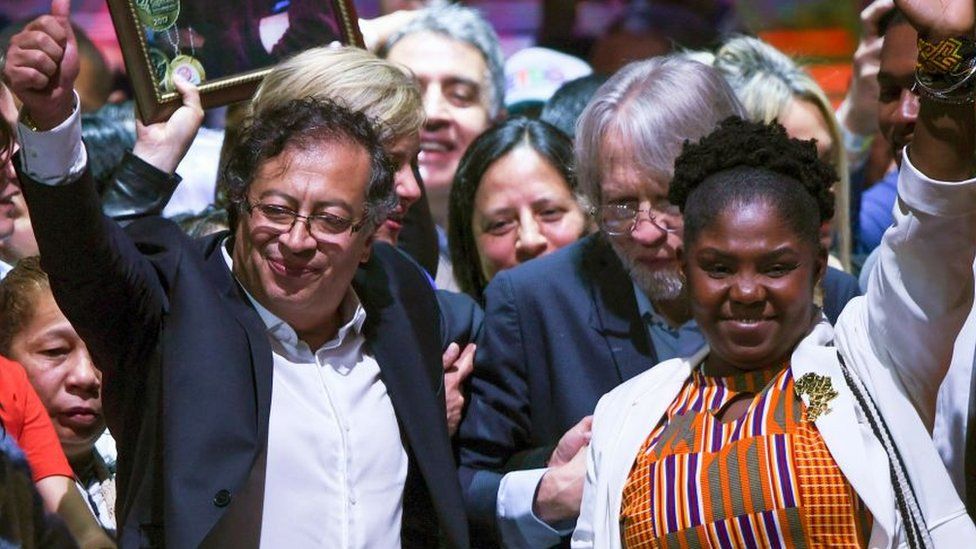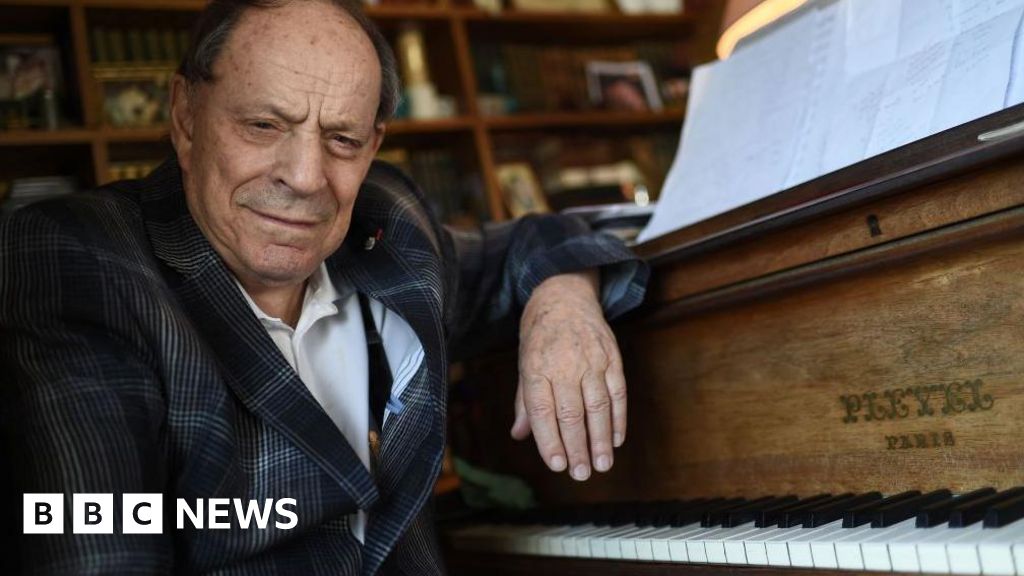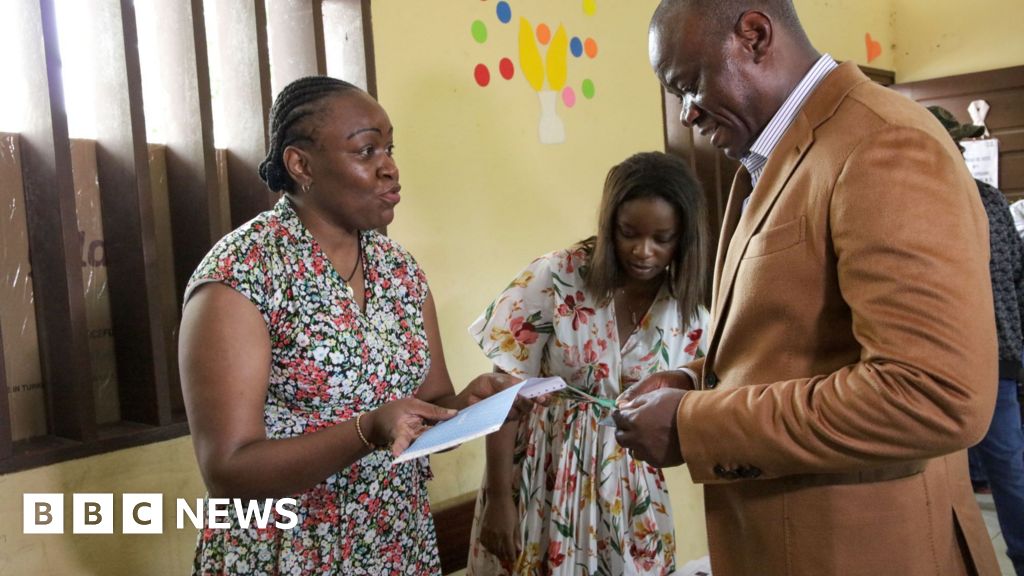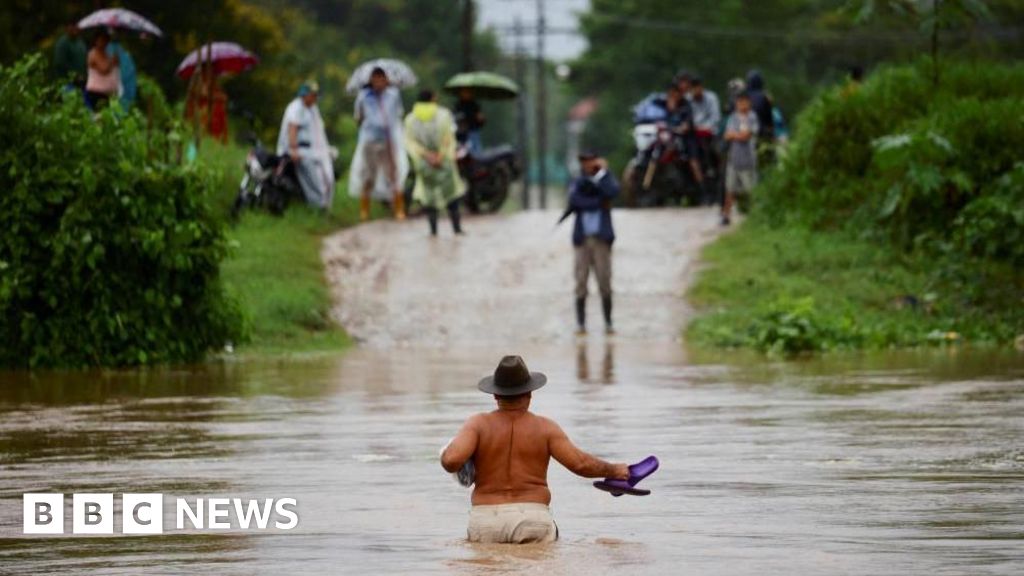ARTICLE AD BOX
By Ben Tobias
BBC News
 Image source, Getty Images
Image source, Getty Images
"What is coming here is real change, real change," Colombia's new President-elect, Gustavo Petro, promised his cheering supporters at his victory speech on Sunday night.
As the country's first-ever left-wing leader - with a running mate, Francia Márquez, who will become the first black woman to be vice-president - Mr Petro's belief that Colombia has voted for change is hard to deny.
Even before his victory, the country had voted for a departure from the status quo, with the outgoing president's nominated candidate failing to make it through the first round of voting.
Instead, Mr Petro won 50.5% of the votes in a second round run-off against millionaire rival Rodolfo Hernández, an independent candidate who railed against corruption.
Gustavo Petro, 62, is a former member of the now-defunct M-19 rebel group, which was originally set up in response to alleged fraud in Colombia's 1970 elections.
The group took up arms against perceived inequality and orchestrated one of the country's bloodiest acts - an attack on the national judicial building which left nearly 100 people dead.
Mr Petro joined the group when he was just 17 and was with the organisation for 10 years. He spent more than a year in prison because of his involvement with them, and has spoken of being tortured by the authorities during his time behind bars. He was in prison at the time of the takeover of the justice building.
After his release, he moved into politics and has spent many years within the political mainstream, serving as a senator and a congressman, as well as the mayor of Colombia's capital, Bogotá.
His victory in a presidential election, on his third attempt, marks a huge departure from the country's conservative establishment and signals Colombia's desire for a new political path.
The country's first ever left-wing president, Mr Petro campaigned on promises of inclusion and addressing inequality - values which are sure to resonate in a country where nearly half the population lives in poverty.
He has pledged to introduce high taxes on unproductive land, as well as to provide free university education.
In contrast to some of the region's other left-wing leaders, who unapologetically back the fossil fuel industry, Mr Petro has also positioned himself as a green candidate, pledging to freeze new oil and gas projects and to provide more security for campaigners. Colombia is said to be the world's most dangerous country for environmental activists.
Image source, Reuters
Image caption,Francia Márquez
Front and centre of Gustavo Petro's campaign has been Francia Márquez, his running mate for the position of vice-president. Ms Márquez, an afro-Colombian who used to work as a cleaner, will be the first black woman to hold the position.
The formidable campaigner has inspired many Colombians with her rise from poverty to vice-president - a rare story in a country where a political career has traditionally only been an option for society's most connected people.
Ms Márquez was already a well-known environmental activist in Colombia. In 2014, she spearheaded a campaign against illegal gold mining in the community of La Toma, where she grew up. She led a group of 80 women on a 560-km (350-mile) march from the region to Bogotá, putting pressure on the government to act.
A task force, set up by the government in 2015, helped bring an end to the illegal mining, while Ms Márquez won a prestigious environmental prize for her work.
Her charisma and background helped Ms Márquez connect with some of the country's most marginalised groups, including the afro-Colombian community to which she belongs.
At campaign rallies, she spoke of Colombia's "structural racism" and blamed the elite for "condemning our people to misery".
Ms Márquez has attracted criticism for being too divisive, but for supporters of her and Mr Petro, their victory represents a moment of hope.
"We've been struggling for so long, so this is a victory for all Colombians, for many people who have been forgotten for so many years," one voter, Diana, told the BBC.
Mr Petro and Ms Márquez face major challenges, including a fragmented congress and a business elite sceptical of some of their policies. But for now, their supporters will feel that real change is on its way.
Watch: TikTok has become a major political battleground in Colombia as candidates reach out to young voters

 2 years ago
21
2 years ago
21








 English (US)
English (US)